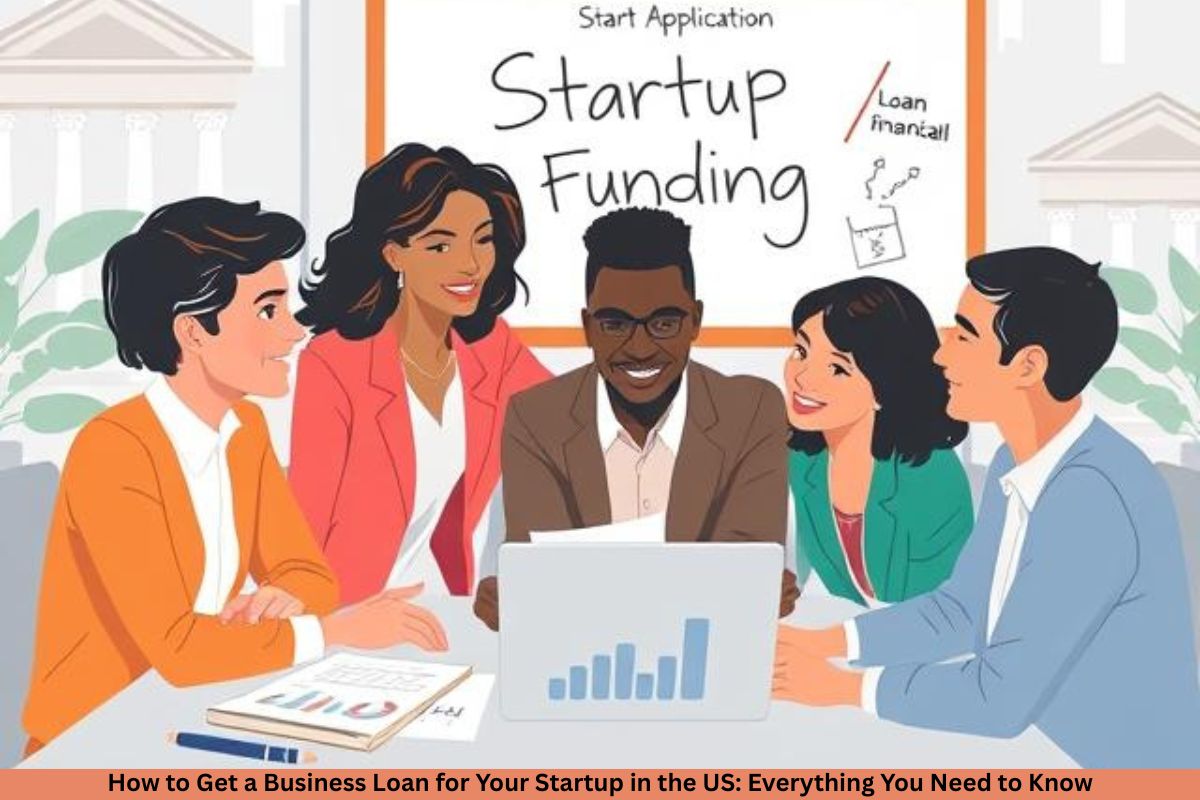Starting your personal commercial enterprise? That’s thrilling—however, let’s be realistic, it’s additionally high-priced. Whether it’s constructing a internet site, shopping for inventory, or renting an office, every huge idea needs some stable monetary backing. That’s where business loans for startups come into play.
In this guide, we’ll break down everything you need to know about getting a startup mortgage within the US—from what options are to be had to how to improve your chances of approval.
Understanding Business Loans for Startups
What Qualifies as a Startup?
Generally, a startup is a business enterprise that’s still in its early stages, normally less than two years old. Startups are frequently excessive-increase and innovative, however, they also pose greater dangers for creditors.
How Startup Loans Differ from Traditional Loans
Startup loans are tailored for agencies without years of tax returns or an established credit score. They typically require sturdy business plans, and in some cases, founders have to offer private guarantees.
Types of Startup Business Loans
SBA Loans
The Small Business Administration doesn’t lend directly, but it assures loans made with the aid of banks and other creditors, making it less complicated for startups to qualify.
SBA 7(a) Loans
The most common SBA mortgage. You can borrow as much as $5 million for running capital, equipment, or actual property. It’s tremendous if you qualify, but the system may be sluggish and paperwork-heavy.
SBA Microloans
Need under $50,000? SBA Microloans are ideal for very early-stage companies. These loans are easier to get and feature less red tape.
Traditional Bank Loans
Getting a mortgage from your nearby bank might sound vintage-school, however, it comes with low interest rates and longer terms. The trap? You usually want stellar credit, collateral, and a proven tune document.
Pros and Cons for Startups
- Pros: Low fees, credibility
- Cons: Tough approval, lengthy wait instances
Online Lenders
Think of them as the velocity demons of the lending world. Online creditors can approve and fund your mortgage in a matter of days, but they charge for that speed.
Fast Funding with Higher Rates
Expect interest rates from 10% to 50%, depending on your credit score profile. Ideal for quick-term needs whilst you’re in a pinch.
Business Credit Cards
Sometimes, all you want is revolving credit. Business credit cards assist you to go with the flow while earning rewards; however, don’t max them out.
Flexible, But Risky
Use them accurately and pay them off month-to-month, otherwise you’ll grow to be buried beneath 20 %+ APR.
Equipment Financing
Starting a meals truck? Or maybe a printout? Equipment financing helps you to purchase equipment and equipment without draining your cash.
Ideal for Asset-Based Startups
The equipment acts as collateral, so approval is less difficult than unsecured loans.
Invoice Financing
Got unpaid invoices piling up? Invoice financing turns the ones into quick cash.
Best for B2B Startups
Great if your customers take 30-90 days to pay, and you are caught in a cash flow crunch.
Personal Loans for Business
When business loans aren’t available, founders often flip to private loans.
When Founders Use Their Credit
If you’ve got an excellent credit score rating (700+), non-public loans offer fast funding with moderate rates, but you’re individually on the hook.
Crowdfunding and Peer-to-Peer Lending
Can’t get a conventional loan? Try tapping the group.
Non-Traditional, but Growing
Websites like Kickstarter or LendingClub permit you to boost the price range from people rather than banks. It’s no longer assured, but it’s well worth exploring.
Factors That Affect Loan Approval
- Credit Score: Both business and personal credit score remember.
- Time in Business: The longer, the better—however, some loans receive “day-one” startups.
- Annual Revenue: Many lenders require a minimum of $50,000–$100,000 in revenue.
- Business Plan Quality: A sturdy, specific plan can make or damage your software.
Tips for Getting Approved
- Create a Solid Business Plan – Include economic projections, market research, and your growth plan.
- Build Business Credit Early – Get a DUNS wide variety, open a business credit card, and pay providers on time.
- Keep Personal Finances in Order – Many creditors will take a look at your public credit.
- . Choose the Right Loan Type – Match the loan cause to the loan product.
Mistakes to Avoid
- Overestimating Revenue: Be realistic with your financials.
- Taking on Too Much Debt: Just due to the fact you can borrow doesn’t mean you should.
- Ignoring Loan Terms: Watch out for prepayment consequences and high APRs.
Alternatives to Loans
If debt isn’t your style, try these:
- Venture Capital – For high-growth, scalable startups.
- Angel Investors – Wealthy folks who make investments early.
- Grants – Free money! Check out the authorities and nonprofit packages.
Conclusion
Getting a business mortgage as a startup within the US isn’t always smooth, but it’s far from impossible. With the right instruction, strong information about your alternatives, and a bit of grit, you could discover the investment that brings your dream to life.
Take time to evaluate loans, improve your credit, and first-class-song your business plan. After all, your startup’s future should hinge on how smartly you financial its starting.
FAQs
What’s the perfect loan for a startup to get?
SBA Microloans and online loans are usually the easiest for brand spanking new groups to qualify for.
How a whole lot can a startup borrow?
It depends on the loan type, however SBA loans can cross up to $5 million. Microloans cap around $50,000.
Can I get a startup mortgage with terrible credit?
Yes, but options are restrained. You might recollect secured loans or peer-to-peer lending.
What are SBA requirements?
SBA loans typically require a true credit score, a strong marketing strategy, and sometimes a personal assure or collateral.
How lengthy does it take to get funded?
Traditional loans may also take weeks or months. Online creditors can fund you in as little as 24-72 hours.




